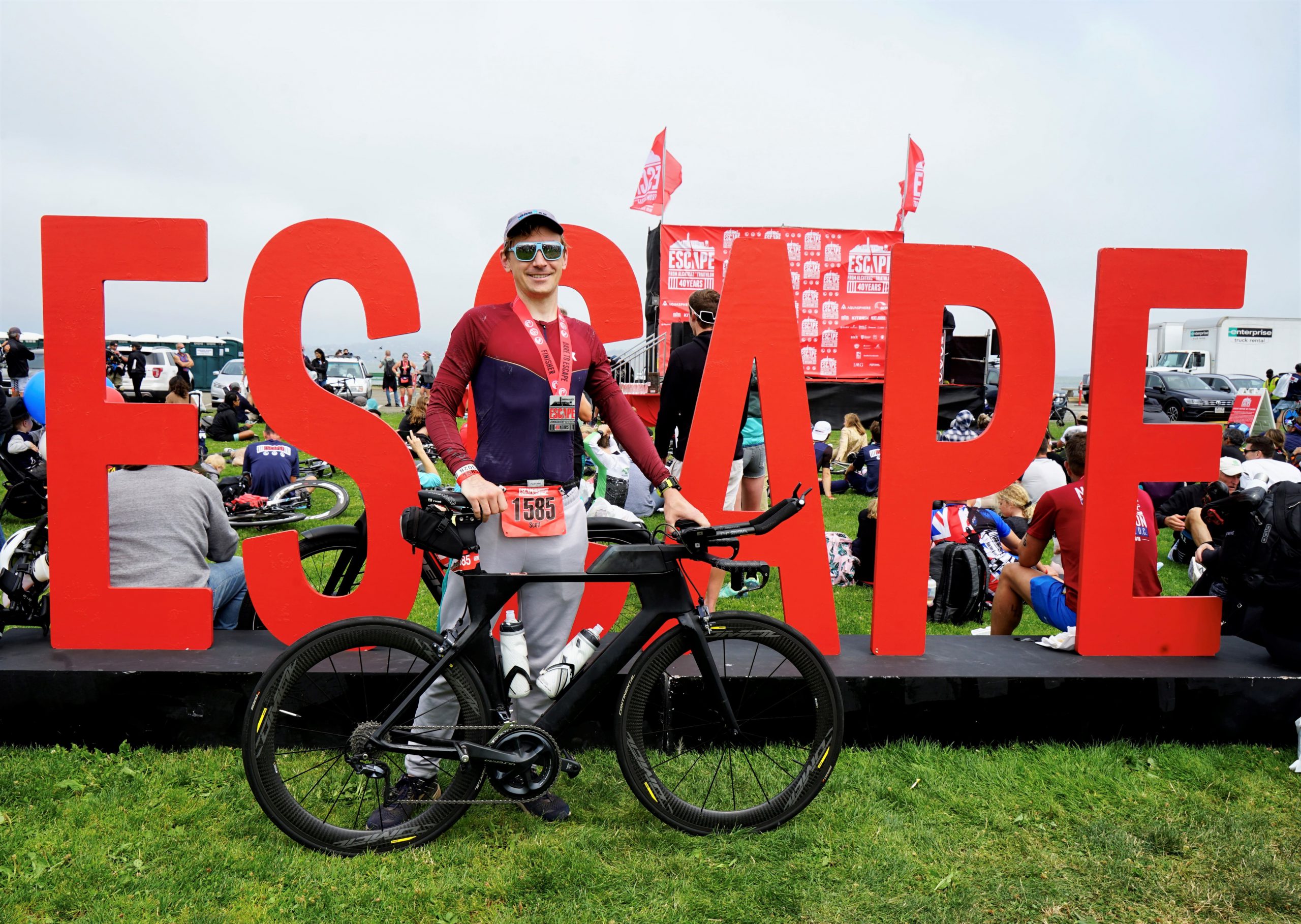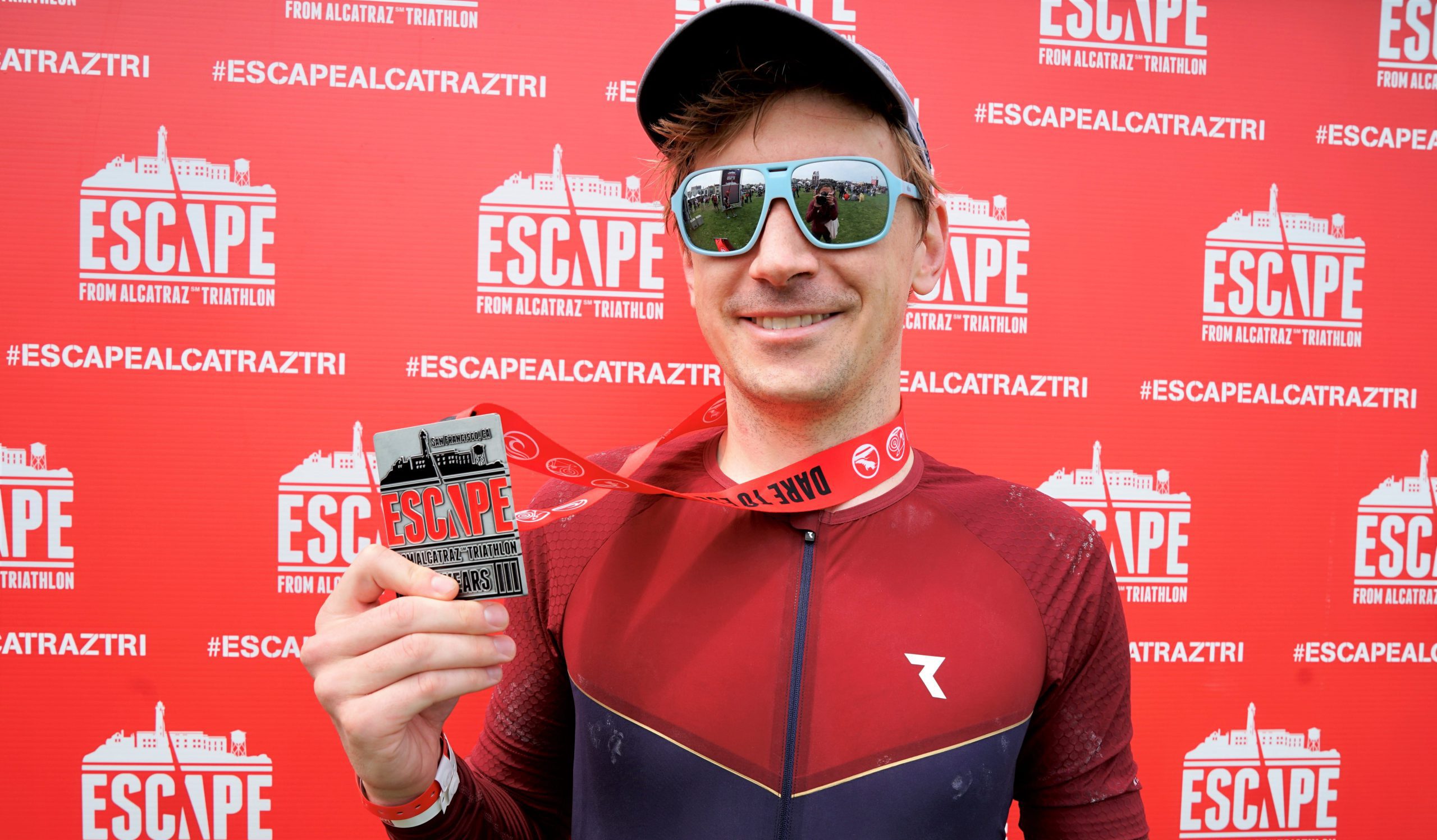Scott Grubb, M.D., is up earlier than usual and working to suppress the butterflies in his stomach. He’s trying to focus.
It’s 4:30 a.m. on Sunday, Aug. 15, and Grubb has already performed his pre-race ritual of downing coffee and peanut butter toast.
This will be the easiest part of his day.
That’s because what lies ahead is a physically grueling competition that he’s been training the better part of a year for: The Escape from Alcatraz Triathlon.
This world-renowned sports race is no simple feat, much like his experience working on the front lines during the COVID-19 pandemic.
The race, launched in 1981, is comprised of a 1.5-mile swim in San Francisco Bay’s frigid waters, followed by a strenuous 18-mile bike ride up and over some of the city’s steepest hills. The final leg is a gusty 8-mile run along the picturesque promenade of the Golden Gate National Recreation Area shoreline.
This year, some 2,000 triathletes from dozens of countries across the globe qualified to compete.
“Training and preparing has been a grounding force for me after long hours working at the hospital,” said Grubb.
Grubb, an anesthesiologist with Sutter’s California Pacific Medical Center who was born and raised in Rohnert Park, Calif., has successfully completed a handful of other triathlons and said it was his first time attempting the Escape from Alcatraz Triathlon.
“I was looking forward to the swim leg the most. I had never swum in the middle of the Bay before and was worried about the strong currents but excited to see if I could navigate with the choppy waves and wind,” he said.
Taking the plunge
For Grubb, being able to experience San Francisco’s beauty in a new and challenging way was his primary motivation for signing up.
“Training over the better part of the past year has been a constructive ‘escape’ from the challenges of the pandemic. It’s been an outlet to push myself and improve my physical and mental fitness,” says Grubb.
According to the Centers for Disease Control and Prevention, regular physical activity is one of the most important things you can do for your health. A regular fitness routine can help keep your thinking, learning, and judgment skills sharp as you age. It can also reduce your risk of depression and anxiety. Exercise can even help you get better sleep.
Grubb says the pandemic has been such a stressful time for everyone, but especially his colleagues, doctors, nurses, and staff at CPMC.
He explains that fighting through the ups and downs of the pandemic is our most important endurance race right now.
“The inspiration that comes from competing in a triathlon is nothing compared to the selflessness displayed by all the healthcare providers I work with on a daily basis. They are the true inspiration,” he says.

Scott Grubb at the Escape from Alcatraz Triathlon
At 7:30 a.m., Grubb, along with the hundreds of other racers, took the plunge from a San Francisco Ferry, noting that participants don’t actually start from Alcatraz Island. The water temperature was a body-numbing 57 degrees Fahrenheit. Fortunately, Grubb, like others, was wearing an insulated wetsuit to help lessen the water’s chilly sting.
Grubb’s final time was an impressive three hours, 26-minutes and 30-seconds.
“I felt great crossing the finish line! All that time preparing on the bike trainer, running through Golden Gate Park and swimming at Aquatic Park paid off,” said a now-relaxed Grubb.
He said his plans after the race included taking a nice, long nap. Who can blame him?
And probably safe to say, it’s unlikely Grubb will ever gaze out onto the Bay or walk along the Presidio’s waterfront without taking a moment to reflect on his two outstanding achievements this year: finishing the race and working through the COVID-19 pandemic.





